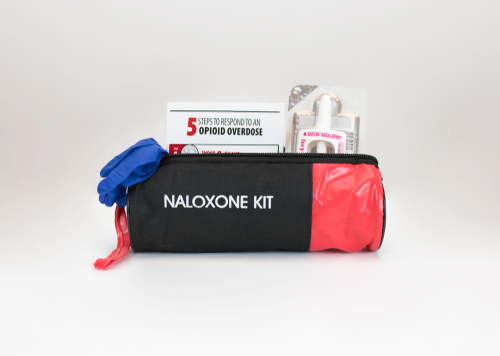
U.S. Sens. Tammy Baldwin (D-WI), Shelley Moore Capito (R-WV) and Maggie Hassan (D-NH) introduced legislation on Tuesday that would provide investments for a grant program meant to help train and provide resources to first responders working to prevent overdose deaths.
The Safe Response Act, S. 2933, would guarantee funds for states, local government entities and Tribes to help first responders and other essential community members learn how to use overdose reversal drugs like naloxone. More than 106,000 people reportedly died from drug overdoses in 2021 alone, according to the Centers for Disease Control and Prevention (CDC), and items like naloxone can – when administered properly – save lives.
“When someone is experiencing a drug overdose or poisoning, every second makes a difference. I’m proud to have worked to expand access to lifesaving drugs like naloxone, but we must do more to ensure overdose reversal drugs can be effectively used in an emergency,” Baldwin said. “Our firefighters, police officers, and paramedics are often the first responders to an overdose, and it’s our job to make sure they have the training they need to save lives.”
The focus on first responders is because they are usually the first on-scene after an overdose, and have access to medications like naloxone capable of reversing those overdoses.
The Safe Response Act would provide $57 million per year in grants for fiscal years 2024 through 2028, allowing recipients to use them for a variety of cases, including:
- Getting first responders and others the knowledge and training to use overdose-reversal devices and medications;
- Technical assistance and training on how responders can better protect themselves if exposed to such drugs in the line of duty;
- Creating referral processes for treatment and connecting those on overdose reversal drugs to follow-up services;
- Education about standard safe operating procedures during exposure to fentanyl, carfentanil and other dangerous drugs.
“With deaths from fentanyl on the rise in West Virginia and across the nation, it is essential we provide resources to ensure our first responders have the training necessary to save lives and keep themselves safe,” Capito said. “I’m proud to join with a bipartisan group of colleagues to put forward a solution which would reauthorize this important program.”
Notably, this would build on increased funding for opioid treatment and prevention programs already included in the upcoming FY24 government funding legislation. Grants would have to be awarded to entities in both urban and rural areas, and the Secretary of Health and Human Services (HHS) would need to evaluate the number of first responders and other key community sector members equipped with overdose reversal drugs, cases they have successfully reversed, and more.
The bill was backed by the National Council of Urban Indian Health, National Alliance on Mental Illness, and Big Cities Health Coalition.




